History > QUESTIONS & ANSWERS > AP U.S. Gov Landmark Supreme Court Cases 2022 with complete solution (All)
AP U.S. Gov Landmark Supreme Court Cases 2022 with complete solution
Document Content and Description Below
AP U.S. Gov Landmark Supreme Court Cases 2022 with complete solution Marbury v. Madison (1803) -Answer- Established the power of judicial review in finding that a congressional statute extending th... e Court's original jurisdiction was unconstitutional (Marshall Court) Obergefell v. Hodges: Outcome -Answer- Same-sex marriage became legal in all 50 states. Engel v. Vitale (1962) -Answer- Prohibited state-sponsored recitation of prayer in public schools by virtue of 1st Amendment's establishment clause and the 14th Amendment's due process clause (Warren Court) Gideon v. Wainwright (1963) -Answer- Extended to the defendant the right of counsel in all state and federal criminal trials regardless of their ability to pay (Warren Court) Miranda v. Arizona (1966) -Answer- Criminal suspects must be informed of their right to consult with an attorney and of their right against self-incrimination prior to questioning by police; established Miranda warnings of counsel and silence. (Warren Court) Engel v Vitale: Outcome -Answer- Said the prayer was not allowed, because the school was seen as promoting a religion. Loving v. Virginia (1967) -Answer- Struck down state's law banning interracial marriage as violation of the 14th Amendment equal protection clause (Warren Court) Tinker v. Des Moines (1969) -Answer- Upheld student's speech rights; wearing black arm bands in protest of Vietnam War is protected symbolic speech under the 1st Amendment (Warren Court) Santa Fe Independent School District v Doe: Outcome -Answer- Said that prayer over the loud speaker at football game was not allowed because school and religion should be separate. Lemon v. Kurtzman (1971) -Answer- Established the "Lemon Test" to determine if a government law or action is constitutional under the Establishment Clause of the 1st Amendment: 1) the law must have a legitimate secular purpose, 2) must neither advance nor inhibit religion, 3) and must not result in an excessive entanglement of government and religion (Burger Court) Wisconsin v. Yoder (1972) -Answer- Compelling Amish students to attend school past the eighth grade violates the free exercise clause because it unduly limits their freedom of religious beliefs and practices [Show More]
Last updated: 2 years ago
Preview 1 out of 4 pages
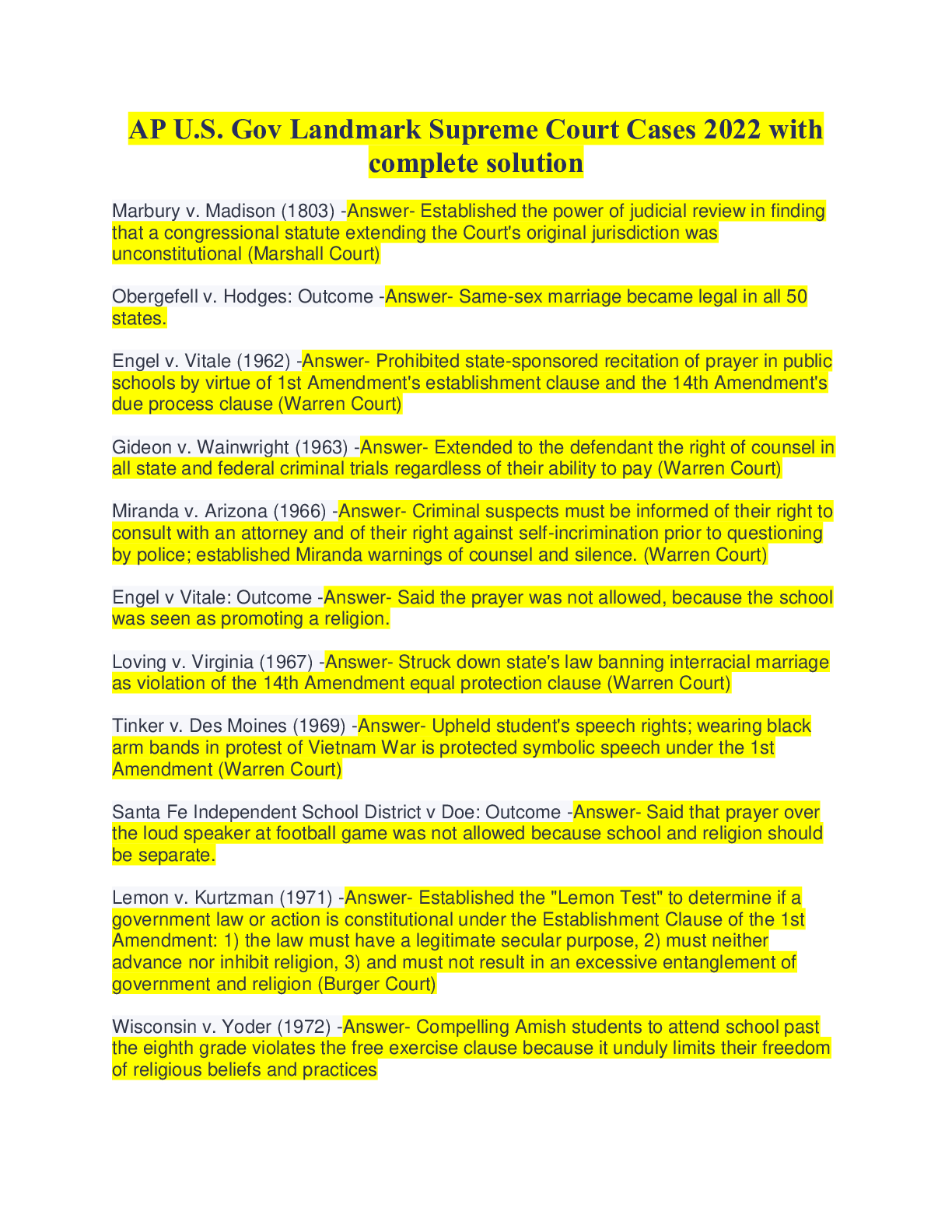
Buy this document to get the full access instantly
Instant Download Access after purchase
Buy NowInstant download
We Accept:

Reviews( 0 )
$7.00
Can't find what you want? Try our AI powered Search
Document information
Connected school, study & course
About the document
Uploaded On
Sep 14, 2022
Number of pages
4
Written in
Additional information
This document has been written for:
Uploaded
Sep 14, 2022
Downloads
0
Views
84

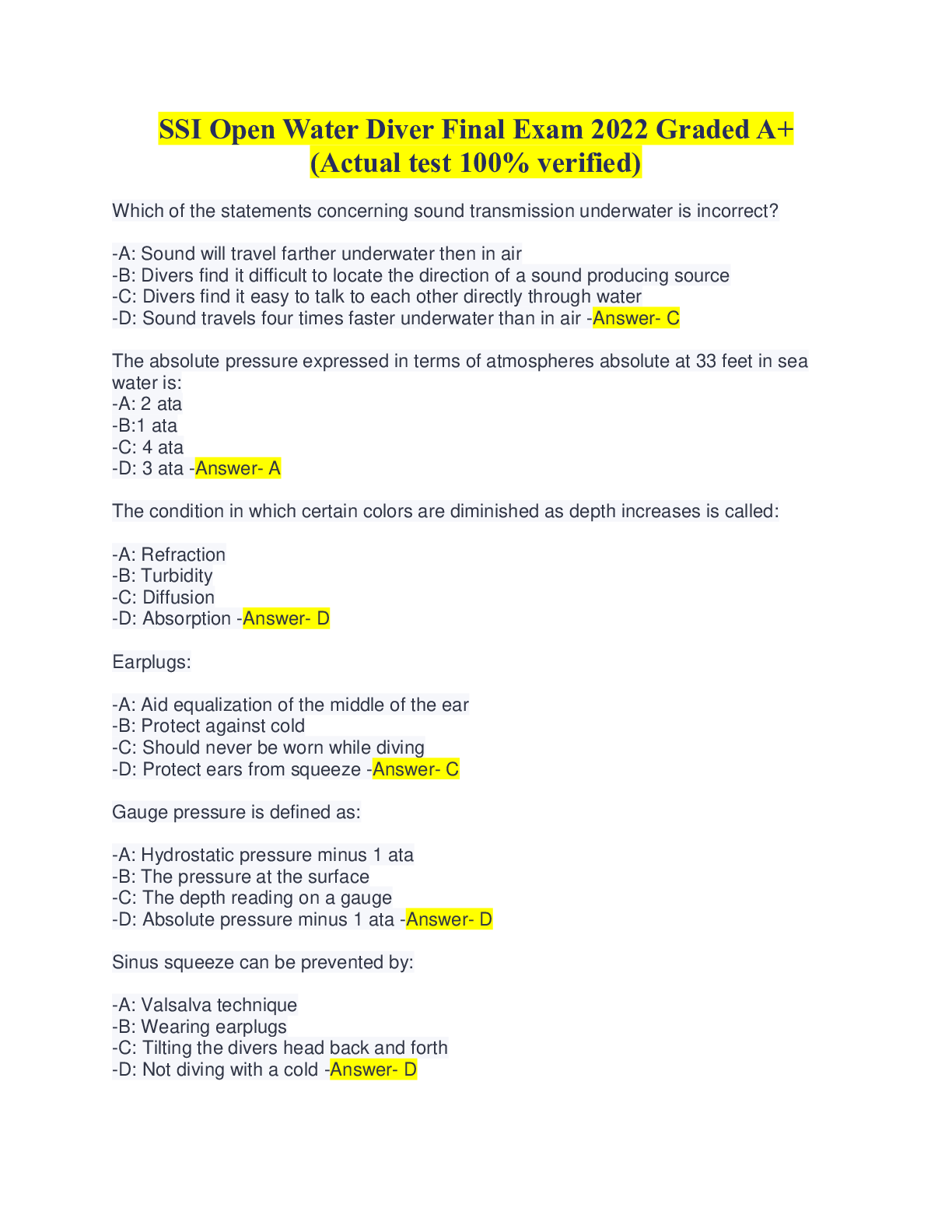


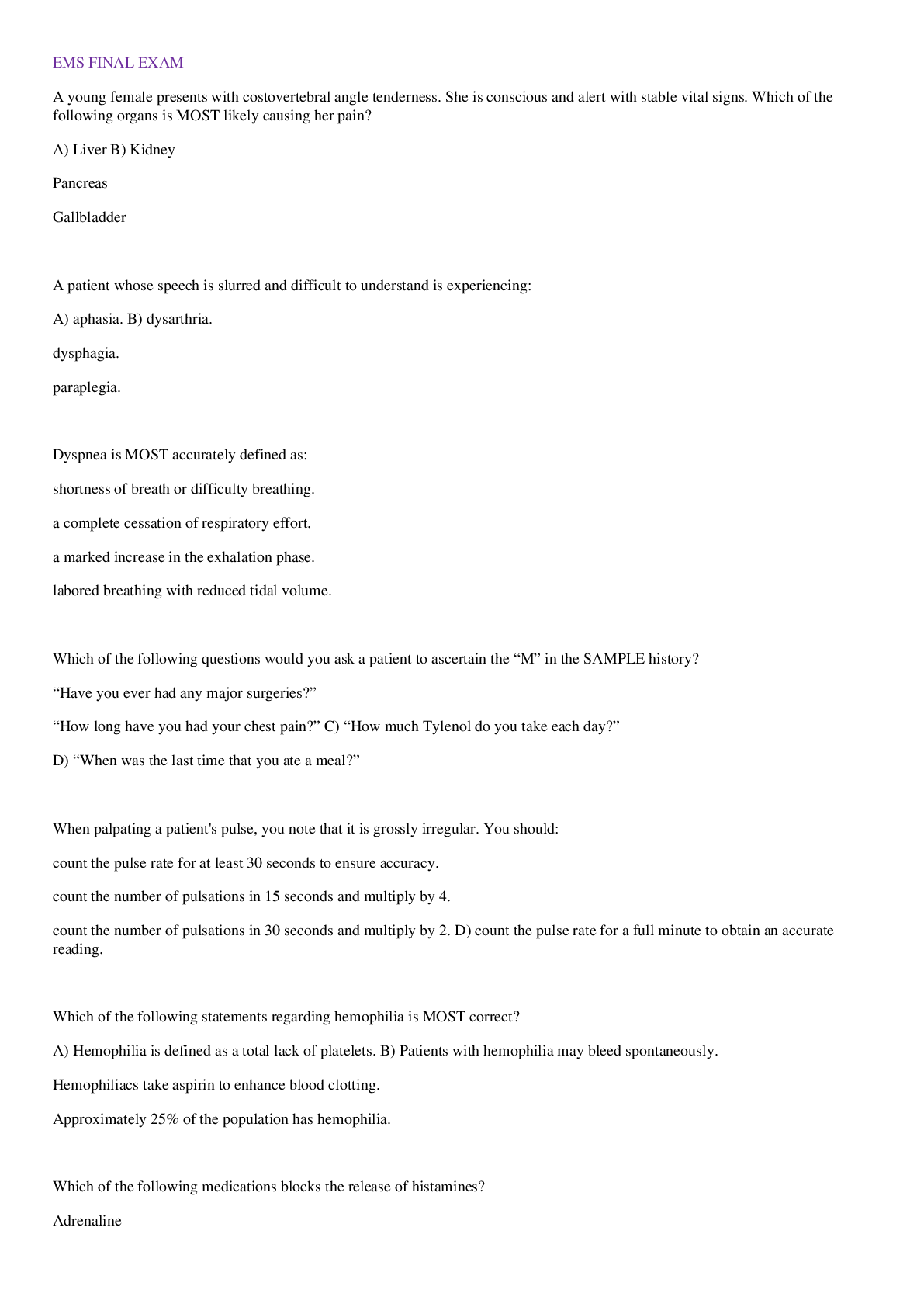

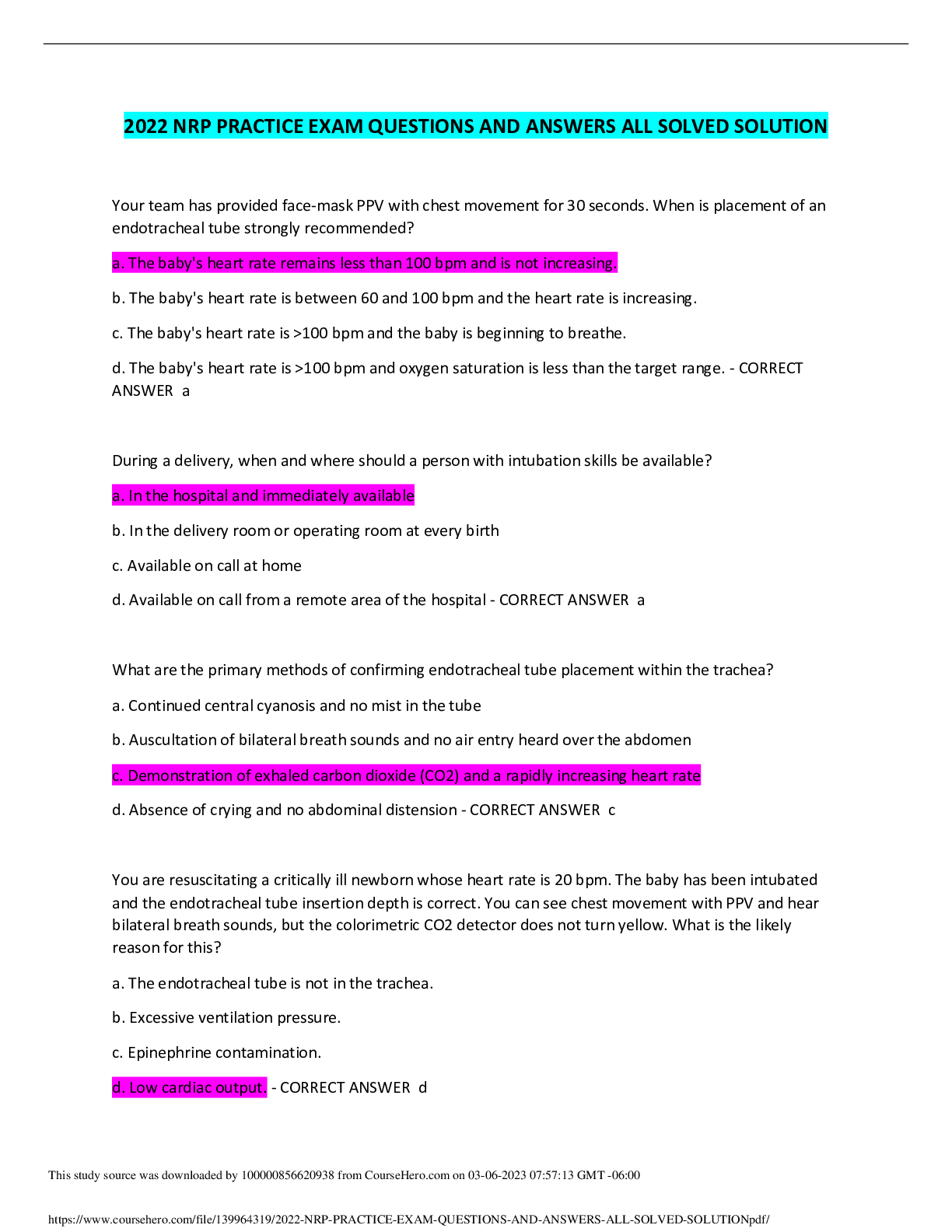
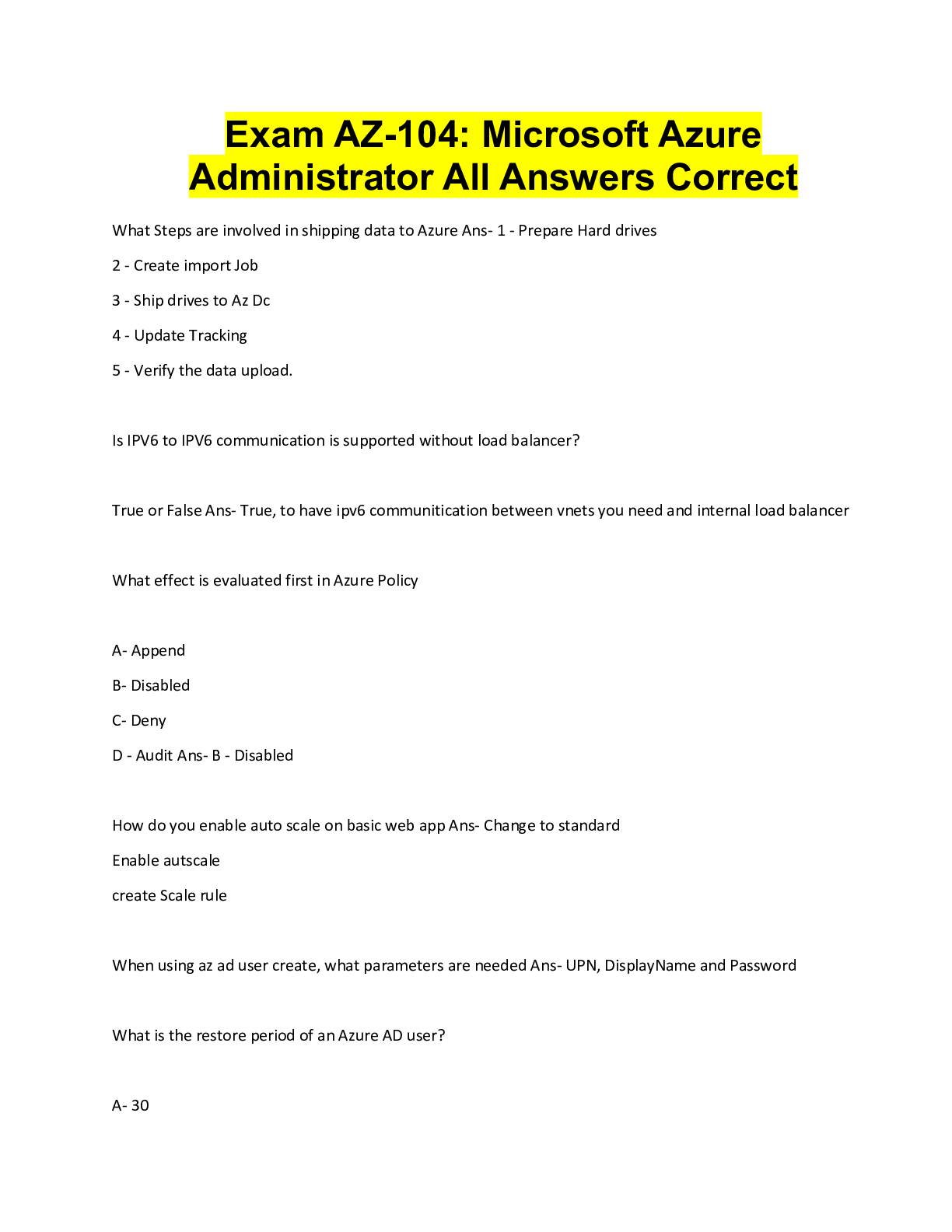
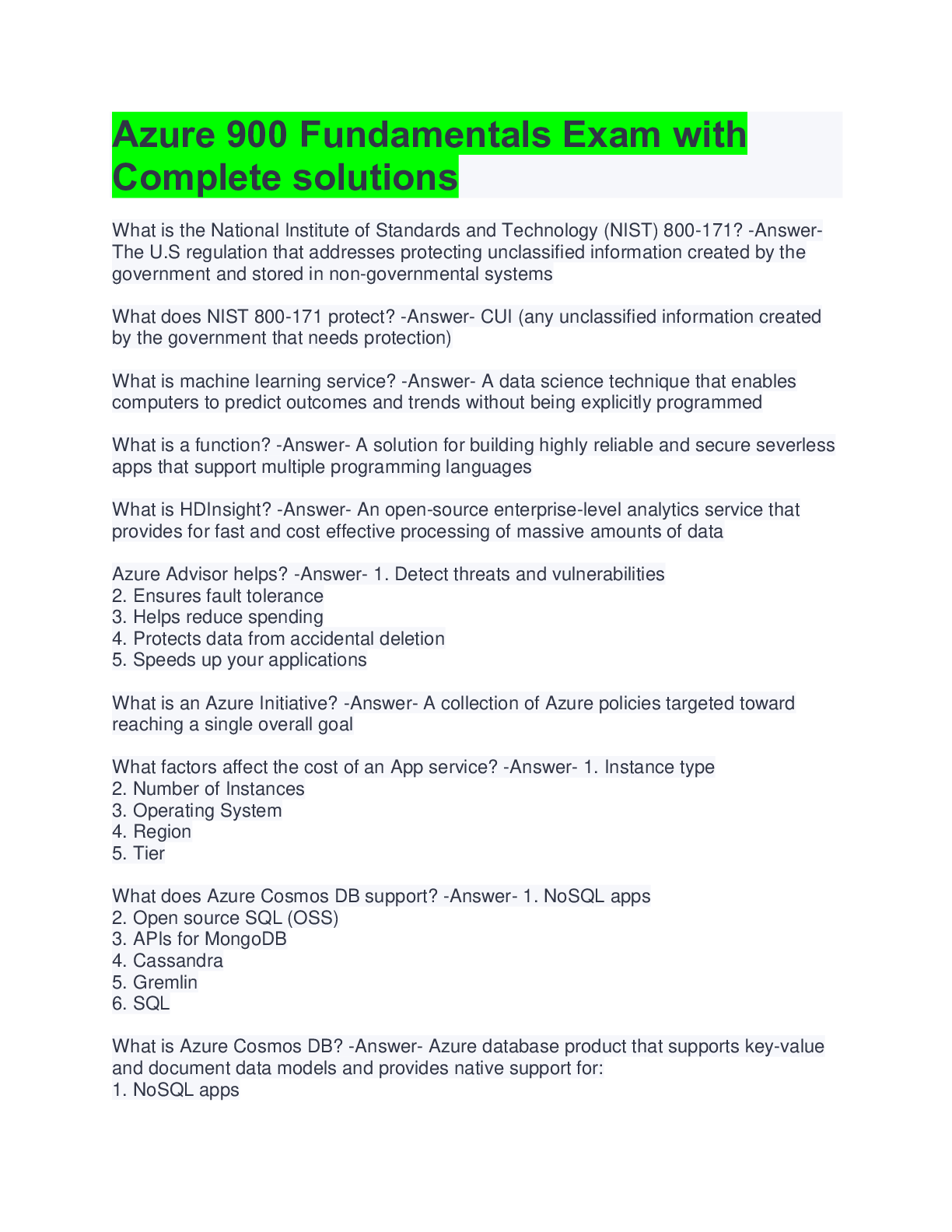

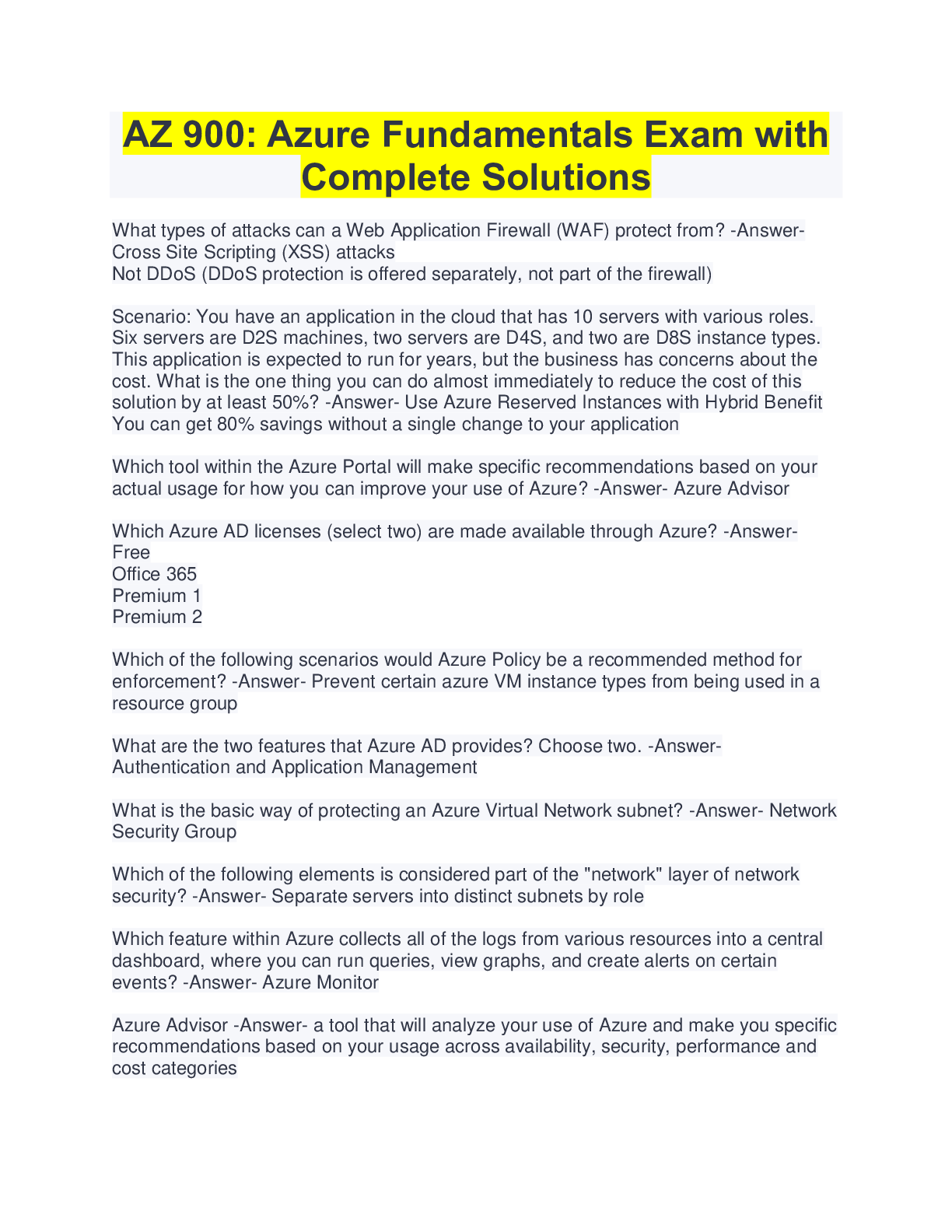
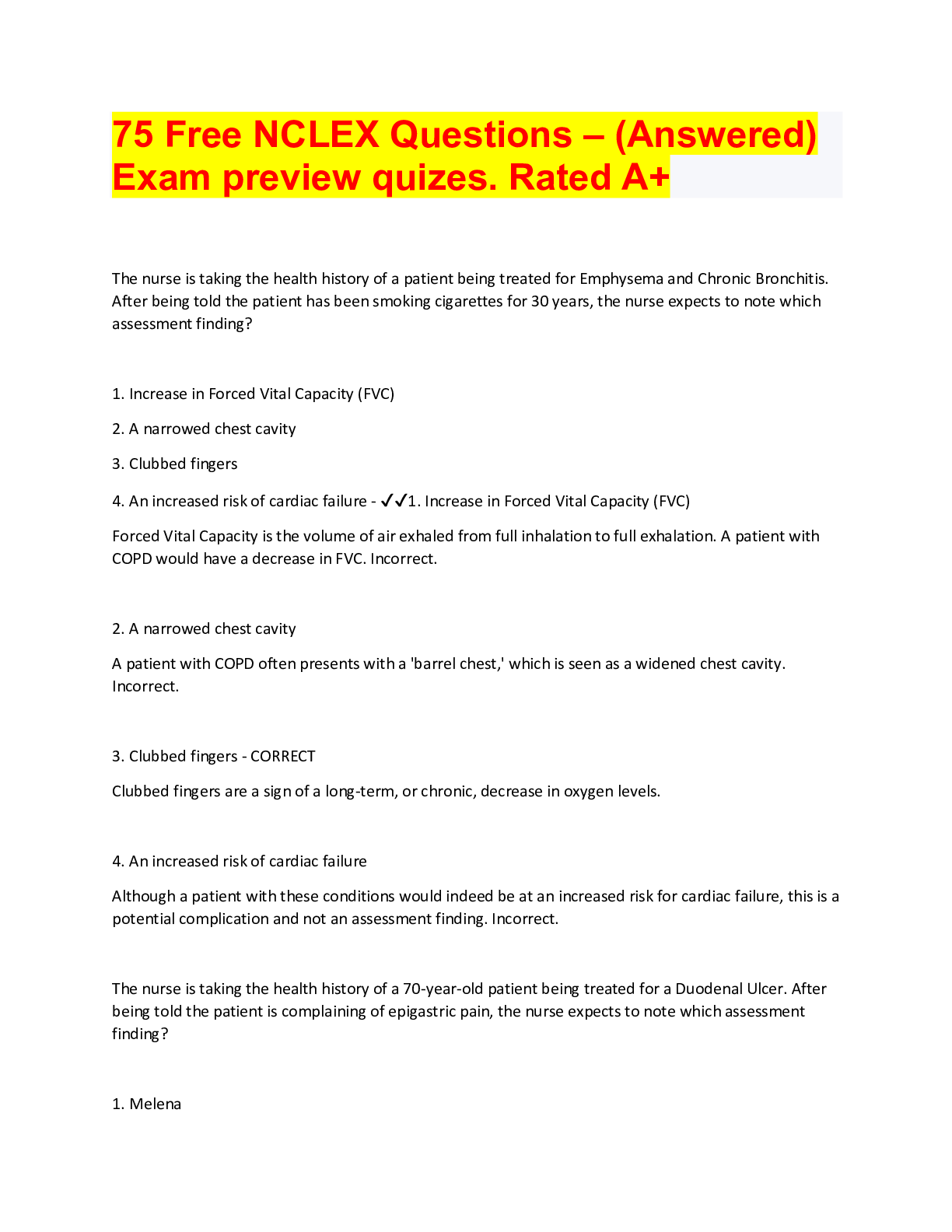



.png)





.png)




